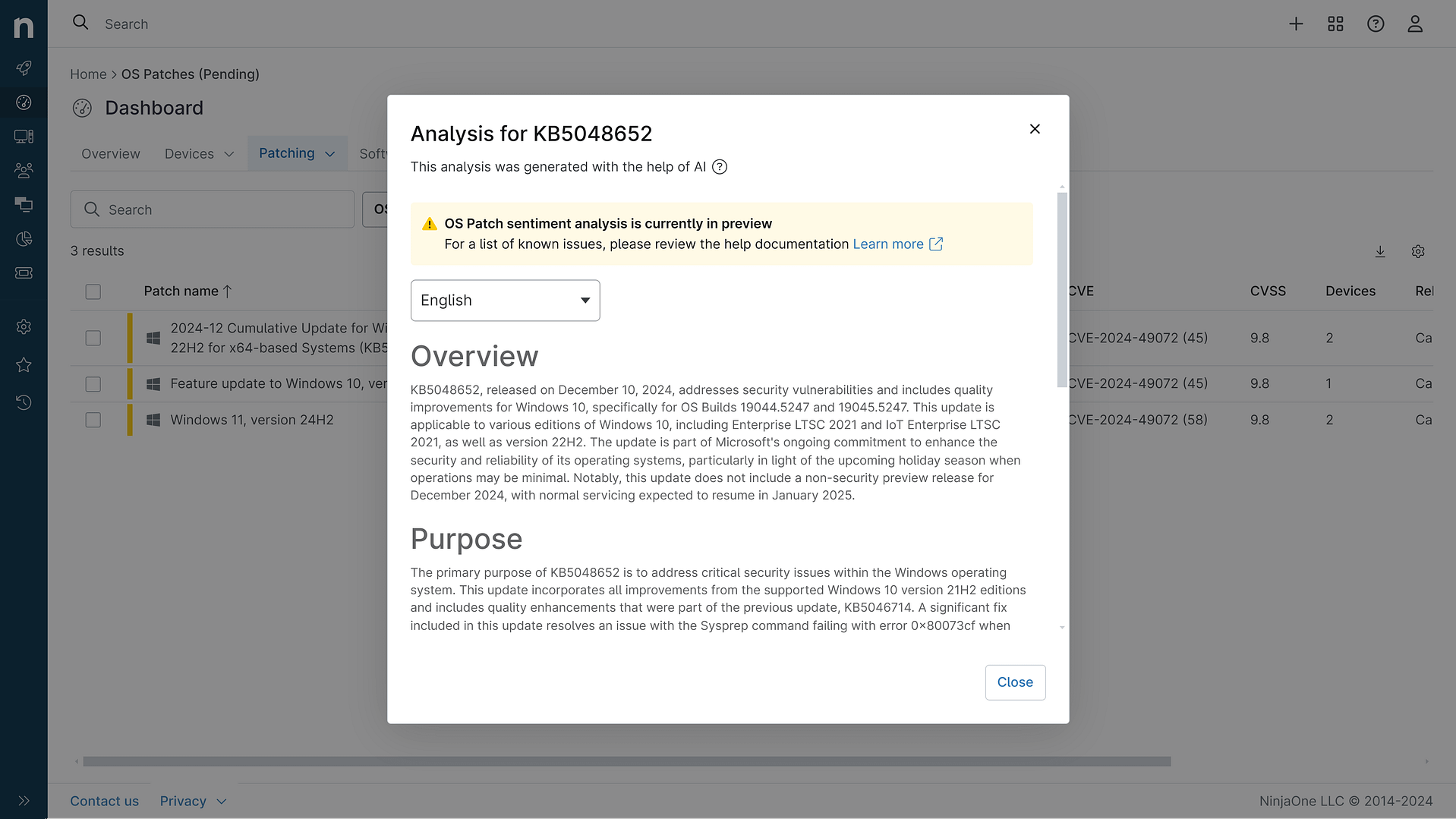KB5060999: Overview with user sentiment and feedback
Last Updated July 31, 2025
Probability of successful installation and continued operation of the machine
Overview
KB5060999 is a security update released on June 10, 2025, for Windows 11 versions 22H2 and 23H2. This update brings OS builds to 22621.5472 and 22631.5472 respectively. It primarily focuses on addressing security vulnerabilities in the Windows operating system while also including quality improvements from the previous month's update (KB5058502).The update contains important fixes for graphics support issues that previously prevented some users from successfully connecting via Remote Desktop. Users experiencing errors like "The Remote Desktop Services session has ended" or "A remote desktop connection cannot be established" should find these problems resolved after installing this update.Additionally, KB5060999 includes servicing stack updates (KB5058546) that improve the component responsible for installing Windows updates. These enhancements ensure a more robust update process for future patches. The update is available through various channels including Windows Update, Windows Update for Business, Microsoft Update Catalog, and Windows Server Update Services (WSUS).
General Purpose
The primary purpose of KB5060999 is to address security vulnerabilities in Windows 11 versions 22H2 and 23H2. This monthly security update continues Microsoft's commitment to maintaining system security through regular patches. The update incorporates all improvements from the previous month's update (KB5058502) while adding new security enhancements.A significant improvement in this update resolves graphics support issues that were causing Remote Desktop connection failures. Users who previously encountered error messages when attempting to use Remote Desktop should find this functionality restored after installing the update. This fix is particularly important for enterprise environments where remote work capabilities are essential.The update also includes servicing stack improvements through KB5058546, enhancing the underlying mechanisms that handle Windows updates. These improvements ensure that future updates can be installed more reliably, maintaining system stability and security. For organizations using update deferral policies, the update includes metadata that may affect deployment timing, which administrators should be aware of when planning rollouts.
General Sentiment
The general sentiment toward KB5060999 appears cautiously positive. As a security update that addresses Remote Desktop connection issues, it provides important fixes that many users will find beneficial, particularly in enterprise environments where remote work is common.However, there are some concerns emerging about potential performance impacts. According to a question posted on Microsoft Q&A, some users within enterprise environments are experiencing significant slowdowns with Office applications after installing KB5060999. The reported issue describes Office files (.ppt, .xlsx, .doc/docx) taking 3-10 minutes to open, even for small 100kb files. This appears to be affecting multiple Dell hardware models running Windows 11 23H2, though the problem doesn't seem to impact CPU or memory usage.It's worth noting that this performance issue may be isolated to specific configurations or environments, as widespread reports of such problems aren't evident in the available sources. Organizations should consider testing the update in controlled environments before wide deployment, especially if their workflows heavily depend on Office applications.
Known Issues
KB5060999 has two documented known issues: Noto fonts issue: Users may experience blurry or unclear CJK (Chinese, Japanese, Korean) text when displayed at 96 DPI (100% scaling) in Chromium-based browsers like Microsoft Edge and Google Chrome. This issue stems from the March 2025 Preview Update's introduction of Noto fonts for CJK languages. Increasing display scaling can improve clarity. Update delay with deferral policies: Organizations using quality update (QU) deferral policies might experience delays in receiving this update. Although released on June 10, 2025, the update's metadata timestamp shows June 20, 2025, potentially causing devices with deferral periods to receive it later than expected. Administrators can create expedite policies or adjust deployment configurations to address this issue.* Office suite performance issues: Some users report significant slowdowns when opening Office files after installing this update. Files like PowerPoint presentations, Excel spreadsheets, and Word documents may take 3-10 minutes to open, even for small files. This appears to affect Dell hardware running Windows 11 23H2, though it's not yet officially acknowledged as a known issue by Microsoft.
Disclaimer: We take measures to ensure that AI-generated content is of the highest possible quality, but we cannot guarantee its accuracy and recommend that users do their own independent research. Generated on 2025-07-31 09:09 PM
